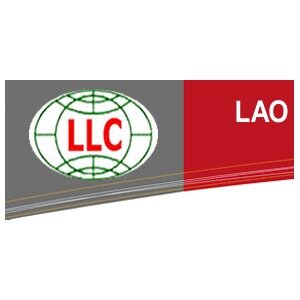Best Restructuring & Insolvency Lawyers in Vientiane
Share your needs with us, get contacted by law firms.
Free. Takes 2 min.
List of the best lawyers in Vientiane, Laos
About Restructuring & Insolvency Law in Vientiane, Laos
Restructuring and insolvency law in Vientiane, Laos refers to the legal framework that governs the process of financial reorganization or liquidation of companies that are unable to meet their financial obligations. This area of law is essential for both debtors and creditors, helping businesses in financial distress find solutions, possibly allowing for rehabilitation instead of full shutdown. In Laos, these processes are shaped by local legislation, regulatory bodies, and court procedures, which collectively aim to protect the interests of both businesses and their creditors while maintaining the stability of the financial system.
Why You May Need a Lawyer
Seeking professional legal advice is highly recommended if you find yourself involved in restructuring or insolvency procedures in Vientiane. Common situations where legal help may be required include:
- Businesses facing financial hardship and considering debt restructuring to avoid insolvency
- Creditors trying to recover debts from insolvent companies
- Shareholders looking to protect their rights during a company’s restructuring process
- Directors and company officers managing the legal and regulatory implications of insolvency
- Foreign investors dealing with cross-border insolvency issues involving Lao entities
- Complex negotiations with multiple creditors and parties involved in a restructuring plan
Local Laws Overview
The restructuring and insolvency framework in Laos is primarily governed by the Law on Enterprises and the Law on Bankruptcy, along with relevant regulations issued by the Ministry of Industry and Commerce and the Ministry of Justice. Some key aspects include:
- Companies facing financial difficulties may apply for restructuring by submitting a plan to the court and creditors.
- Insolvency proceedings can be initiated by creditors or the company itself if the company cannot meet its debt obligations.
- The court plays a crucial role in overseeing bankruptcy cases, appointing administrators or liquidators, and making final decisions on restructuring or liquidation plans.
- There are legal requirements for notification, creditor meetings, and approval of restructuring plans.
- Directors of insolvent companies have obligations to act in the best interests of creditors and may face personal liability for wrongful conduct.
- Local laws are evolving, and developments in regional standards, such as those of ASEAN, may influence Lao practices.
Frequently Asked Questions
What is the difference between restructuring and insolvency in Laos?
Restructuring involves reorganizing a company’s debts or business operations to restore its financial stability, while insolvency refers to a state where a company cannot pay its debts as they fall due, potentially leading to liquidation proceedings.
Who can initiate insolvency or bankruptcy proceedings in Vientiane?
Bankruptcy proceedings can generally be initiated by the debtor company itself or by its creditors, depending on the specific circumstances outlined in Lao law.
Can a company continue operating during restructuring or insolvency proceedings?
In many cases, a company can continue its operations during restructuring, under court supervision and according to the restructuring plan. During insolvency, operations may be limited depending on the court’s orders.
What are the obligations of company directors in insolvency?
Company directors must act honestly and in the best interests of creditors once the company becomes insolvent. Failing to do so can lead to personal liability or legal sanctions.
How are creditors' rights protected during restructuring?
Creditors have the right to be notified, to participate in meetings, to review proposed plans, and to vote on whether to accept or reject restructuring proposals. The court oversees the process to ensure fairness.
Are foreign creditors treated differently under Lao insolvency law?
Foreign creditors generally have equal rights with local creditors, but practical challenges or additional requirements may apply, especially regarding cross-border claims and recognition of foreign judgments.
How long does the restructuring or insolvency process take in Vientiane?
The duration varies depending on the complexity of the case, the number of creditors, and any disputes involved. Simple cases may take several months, while more complex matters can last much longer.
Can individuals file for personal bankruptcy in Laos?
In Laos, the bankruptcy laws primarily focus on legal entities such as companies. Provisions for personal bankruptcy are limited and not commonly pursued.
What documents are required to initiate insolvency proceedings?
Typically, you will need to provide company financial statements, debt agreements, evidence of insolvency, and a formal application submitted to the court.
What happens to employees when a company undergoes insolvency or restructuring?
Employees' rights are generally protected under Lao labor law. Wages and benefits owed may be treated as priority debts, but outcomes depend on the specific circumstances and the available assets of the company.
Additional Resources
If you need more information or support regarding restructuring and insolvency in Vientiane, consider reaching out to the following:
- Ministry of Justice - Responsible for the administration of insolvency laws and courts
- Ministry of Industry and Commerce - Oversees business registrations and regulatory matters
- Vientiane Creditors Association - Offers advice and support to creditors in insolvency cases
- Lao Bar Association - Provides referrals to specialized restructuring and insolvency lawyers
- Bank of the Lao PDR - Offers guidelines and updates relevant to financial institutions undergoing restructuring
Next Steps
If you believe that you need legal assistance in matters of restructuring or insolvency in Vientiane, consider the following steps:
- Assess your situation and gather all relevant documents, such as financial statements and contracts
- Seek an initial consultation with a lawyer specializing in restructuring and insolvency law
- Discuss your options, including restructuring plans, negotiations with creditors, or the possibility of insolvency proceedings
- Make sure to understand your rights and obligations under Lao law
- Stay informed about any deadlines or procedural requirements, as timely action is critical
- If a formal process is needed, your lawyer will help you prepare and file the necessary documents with the appropriate authorities
Lawzana helps you find the best lawyers and law firms in Vientiane through a curated and pre-screened list of qualified legal professionals. Our platform offers rankings and detailed profiles of attorneys and law firms, allowing you to compare based on practice areas, including Restructuring & Insolvency, experience, and client feedback.
Each profile includes a description of the firm's areas of practice, client reviews, team members and partners, year of establishment, spoken languages, office locations, contact information, social media presence, and any published articles or resources. Most firms on our platform speak English and are experienced in both local and international legal matters.
Get a quote from top-rated law firms in Vientiane, Laos — quickly, securely, and without unnecessary hassle.
Disclaimer:
The information provided on this page is for general informational purposes only and does not constitute legal advice. While we strive to ensure the accuracy and relevance of the content, legal information may change over time, and interpretations of the law can vary. You should always consult with a qualified legal professional for advice specific to your situation.
We disclaim all liability for actions taken or not taken based on the content of this page. If you believe any information is incorrect or outdated, please contact us, and we will review and update it where appropriate.












